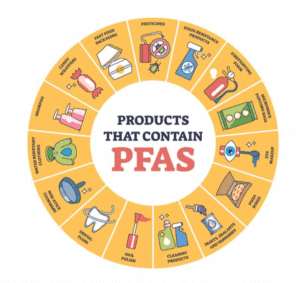Sarah thought she was losing her mind. At 34, she was waking up with painful leg cramps, struggling to fall asleep despite being exhausted, and her left eye had developed an annoying twitch that made her coworkers ask if she was okay. She was tired, had aches and spins, and felt worse after exercise. Her doctor ran blood tests, and everything came back “normal.”
Sound familiar?

Shocking Truth About A Hidden Health Crisis
A statistic that will blow your mind – the research found that a severe lack of daily nutritional requirements affects 52.2% of the U.S. population, including 60.9% of adults and 35.5% of children.
Some studies even suggest it’s even worse, as many as 50-60% of Americans may not meet their daily magnesium requirements. We’re talking about more than half the population walking around deficient in a mineral so crucial that your body can’t function without it.
Most people have no idea they’re deficient in magnesium. That’s because standard blood tests measure serum magnesium, which reflects less than 1% of the body’s total magnesium. Over 99% is stored inside cells, so serum levels often appear normal even when a true deficiency exists. Translation? Your blood test might say you’re fine, while your cells are screaming for help.
If you’re nodding along because you experience trouble sleeping, anxiety that won’t quit, muscle cramps (especially those brutal calf and foot cramps that wake you up), persistent low energy, annoying eye twitches, blood pressure issues, frequent headaches, joint stiffness, or metabolic problems, you might be part of this massive group of undiagnosed magnesium-deficient Americans.
Meet Your Body’s Most Overworked Employee
Think of magnesium as that reliable coworker who manages to be involved in every project. This mineral is required for over 400 different functions in your body, yes, you read that right, 400! From waking up to drifting off to sleep, magnesium works behind the scenes, keeping your biological machinery humming.
What magnesium does in your body every single day:
Your Personal Energy Factory
Remember that crushing afternoon fatigue that no amount of coffee seems to fix? That might be your mitochondria, your cellular power plants, struggling to produce energy without enough magnesium. Every single ATP molecule (think of it as your body’s battery) must be paired with magnesium to work. It’s like trying to run your car on empty without adequate magnesium. You might move, but you’re not going anywhere fast.
Magnesium is the master key that unlocks your body’s ability to convert the food you eat into usable energy. It’s involved in breaking down carbohydrates, fats, and proteins, and optimizing your metabolic function. When your magnesium levels are dialed in, your metabolism runs like a Ferrari. You’re puttering along like a golf cart with a dying battery when they’re low.
Muscle Whisperer
Your heart beats about 100,000 times per day. Your blood vessels expand and contract with every heartbeat. Your skeletal muscles move you through life. All of this muscular activity depends on magnesium to function properly.
Here’s what’s happening when you don’t have enough: Magnesium acts like your body’s natural chill pill for muscles. It controls calcium flow in and out of muscle cells, telling them when to contract and relax. Without enough magnesium:
- Your muscles get stuck in a partially contracted state (hello, chronic stiffness!)
- Those awful leg cramps hit in the middle of the night
- Your eyelid starts twitching uncontrollably
- Your blood vessels stay constricted, jacking up your blood pressure
- Your heart rhythm might go haywire
Your Sleep and Stress Command Center
Magnesium deficiency might be the culprit if you’re tossing and turning at night or feeling like your stress levels are through the roof. This mineral is like having a spa day for your nervous system.
Magnesium helps activate GABA, your brain’s primary “chill out” neurotransmitter. It’s like having a gentle hand on your shoulder, telling your nervous system it’s okay to relax. It also helps regulate cortisol, your stress hormone, and supports healthy melatonin production for better sleep cycles.
But here’s where things get problematic: when you’re stressed (and who isn’t these days?), your body burns through magnesium like crazy. The more stressed you are, the more magnesium you need. But the less magnesium you have, the harder it becomes to handle stress. It’s a vicious cycle that millions of Americans are trapped in without even realizing it.

The Blood Sugar Balancer
Magnesium deficiency is frequently observed in people with type 2 diabetes mellitus, with an estimated prevalence ranging between 11 and 48%. This isn’t a coincidence. Magnesium is crucial in how your body handles glucose and insulin sensitivity.
When magnesium levels are optimal, your cells become more responsive to insulin, meaning your body can more effectively use glucose for energy rather than storing it as fat. This is huge for anyone dealing with weight management issues, PCOS, or insulin resistance.
Why Our Modern Lives Are Magnesium Disasters
But why are we in this mess? Because of chronic diseases, medications, decreases in food crop magnesium contents, and the availability of refined and processed foods, most people in modern societies are at risk for magnesium deficiency.
Perfect Storm
Our grandparents didn’t have this problem, and here’s why we do:
Soil Depletion: Industrial farming has stripped our soil of nutrients. The spinach your great-grandmother ate had significantly more magnesium than the spinach you buy today.
Food Processing: Magnesium status is low in populations who consume processed foods high in fats, refined grains, and sugar. Every time food gets processed, refined, or packaged, magnesium gets stripped away.
Modern Stressors: Our 24/7, always-on lifestyle creates chronic stress that burns through magnesium faster than ever. Add environmental toxins, poor sleep, and intense exercise (even healthy activities increase magnesium demands), and you have a recipe for depletion.
Medications: Long-term use of acid suppressant medications, which are typically used to treat conditions like chronic acid reflux (GERD) and stomach ulcers, can interfere with magnesium absorption. Diuretics, antibiotics, and other common medications can deplete magnesium levels.
Age: Older adults, particularly those over 60, can also experience low magnesium levels. As you age, your body may become less efficient at absorbing this essential mineral.
Food Reality Check
Getting enough magnesium from food alone? Be brutally honest with yourself. One ounce of almonds or cashews will give you 20% of the recommended daily allowance.
You’d need to eat about 5 ounces of nuts every day just to hit the basic RDA, assuming you’re not under any additional stress that would increase your needs.
The richest food sources include dark leafy greens, nuts, seeds, whole grains, and fish. However, the problem is that the RDA (around 400 mg for most adults) is set to prevent disease, not optimize function. Given our modern stressors, most people need significantly more.
Personal Approach: Finding Your Sweet Spot
Because everyone’s needs differ based on stress levels, activity, health status, and genetics, the most effective approach is finding your “bowel tolerance.” This means gradually increasing your magnesium dose until you experience soft bowel movements, then backing off by one capsule.
Your body is smart; it will absorb what it needs and eliminate the excess. This method respects your biochemistry and circumstances.
Not All Magnesium is Created Equal
And this is where supplement quality becomes crucial. Magnesium citrate is commonly used for constipation because it pulls water into your intestines. While this can be helpful for some people, it often means you’ll hit the bathroom before you reach therapeutic doses.
Magnesium glycinate is the gold standard for supplementation. It’s bound to the amino acid glycine, which:
- Enhances absorption significantly
- Minimizes digestive upset
- Allows you to take higher doses without the laxative effect
- Provides the added benefit of glycine, which supports relaxation and sleep
Ripple Effect of Getting it Right
When you optimize your magnesium levels, you’re not just addressing one issue but supporting hundreds of bodily functions simultaneously. People often report:
- Sustained energy without caffeine crashes
- Deeper, more restorative sleep
- Better stress resilience and mood stability
- Reduced muscle tension and cramps
- Improved exercise recovery
- Better blood pressure and heart health
- Enhanced mental clarity and focus
- More stable blood sugar levels
Your Action Plan
If you recognize yourself in these symptoms, if you’re tired despite getting sleep, stressed despite your best efforts, cramping despite staying hydrated, or just generally feeling “off,” magnesium deficiency could be a major piece of your health puzzle.
The beautiful thing about addressing magnesium deficiency is that it’s relatively straightforward once you know what you’re dealing with. Choose a high-quality magnesium glycinate supplement, start with a moderate dose, and gradually increase until you find your optimal level using the bowel tolerance method.
Remember, this isn’t about taking another supplement and hoping for the best. This is about addressing a fundamental nutritional deficiency that could be at the root of multiple health issues you’ve been struggling with.
You Don’t Have to Feel This Way
Chronic fatigue, anxiety, muscle cramps, poor sleep, and stress sensitivity aren’t just “part of life” or inevitable consequences of aging. They could be symptoms of a deficiency affecting more than half of Americans, easily addressed once you know what you’re looking for.
In comparison with calcium, magnesium is an “orphan nutrient” that has been studied considerably less heavily, but the research we do have is compelling. Low magnesium levels have been linked to virtually every chronic health condition plaguing modern society.
Your body is incredibly resilient and wants to heal. Sometimes it just needs the right raw materials to do its job. For millions of Americans, magnesium might be exactly what’s been missing.
Don’t spend another day wondering why you feel tired, stressed, or “off” when the solution might be simpler than you think. Your future self, the one sleeping soundly, handling stress gracefully, and waking up with steady energy, will thank you for taking this seriously.
Ready to Take Charge of Your Health?
Don’t let magnesium deficiency silently hold you back. Fuel your energy, sleep, and metabolism with Super Mag, formulated for optimal absorption and gentle digestion.
Shop Super Mag Today or call us at +1-403-237-2353 to learn more!



